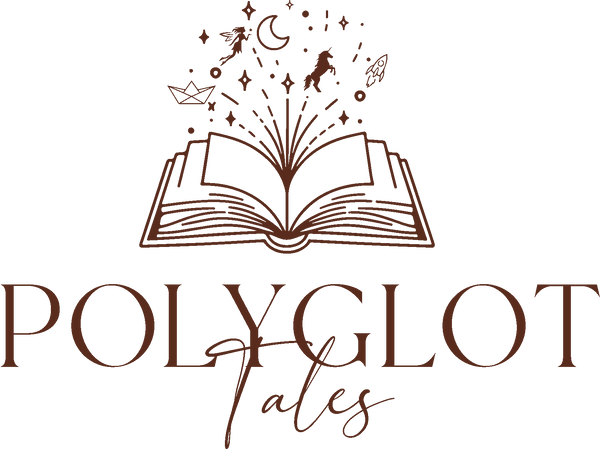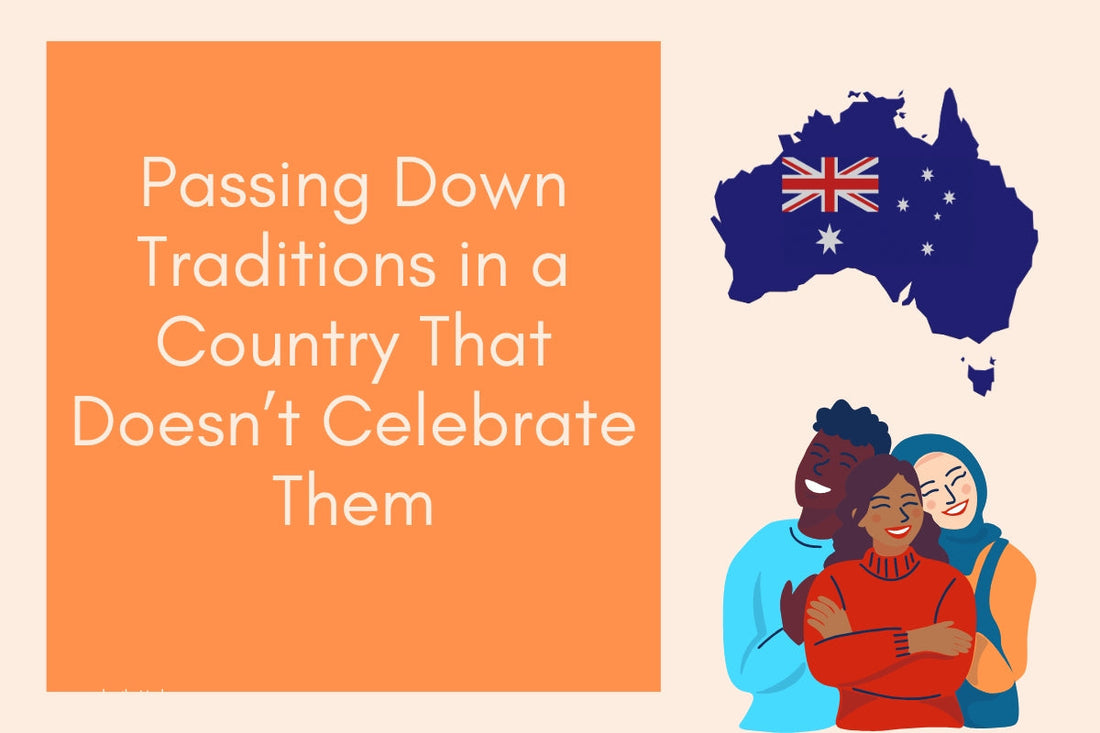By Polyglot Tales – Your Children’s Language Books Store in Australia
When I first arrived in Australia more than a decade ago, I remember feeling a quiet ache during our cultural festivals. No lanterns on the street for Lunar New Year. No smell of mithai in the air during Diwali. No signs of Hinamatsuri or Ferragosto. It was a beautiful country, yes—but it felt like I had to tuck a part of myself away.
Fast forward to today, and I can see the change. Australia is slowly becoming a richer tapestry of traditions, a melting pot shaped by the many migrant families who now call it home. Schools talk about Lunar New Year. Community centres host multicultural events. And my local Woolies even stocks mooncakes in July.
But if you’re raising a child here—one who was born here—you may still feel the tension.
Because while Australia is getting more welcoming of different cultures, it’s still not quite enough for our children to experience our heritage the way we did—fully, intuitively, and proudly. The festivals don’t feel the same. The language isn’t spoken around them every day. And the stories of our childhood are missing from their bookshelves.
At Polyglot Tales, we meet so many parents—Japanese mums, Indian dads, Chinese-speaking grandparents, Italian nonnas—trying to bridge this cultural gap in their homes. And the truth is: passing down traditions in a country that doesn’t fully celebrate them yet takes heart, intention, and creativity.
Here’s how we can do it together.
1. Make Your Home the Cultural Core
Your home can be a place where your child sees, hears, smells, and feels their culture. It might not look like the festivals back home, but it can still carry meaning.
-
Celebrate Hinamatsuri with handmade dolls and a story at bedtime.
-
Cook Diwali sweets together and light a few diyas, even if no one else on the street does.
-
Sing Italian lullabies or Chinese nursery rhymes during the daily drive to school.
-
Create a bookshelf that proudly features books in your child’s heritage language.
At Polyglot Tales, we curate children’s books in Hindi, Japanese, Traditional and Simplified Chinese, and Italian—authentic stories that connect your child to the culture you grew up with.
2. Talk About the Why
In a multicultural country like Australia, children are exposed to so many worldviews—which is wonderful! But sometimes they wonder why their family does something different from their friends.
That’s the perfect moment to go deeper. Why do we celebrate Raksha Bandhan? What does the Moon Festival teach us about family? Why is Ferragosto special in Italy?
Language is key here. When these stories are told in your heritage language, they don’t just inform—they connect. Bilingual books can help your child feel proud of who they are, in both English and their home language.
3. Build a Family Celebration Calendar
Public holidays in Australia might not line up with your cultural calendar—but your family can still mark those special days.
Take a day off. Invite friends over. Set up a small ritual, even if it’s just a favourite dish, a book reading, or a video call with grandparents. These moments become childhood memories—the kind your kids will want to pass on too.
4. Find Your Village
While mainstream Australia may not yet celebrate your traditions widely, other families like yours do exist—and they’re often looking for connection too.
Join language playgroups, cultural community centres, or even online groups of bilingual families. Surrounding your children with others who share (or are learning about) your culture can make a world of difference.
5. Let Language Carry the Legacy
Tradition and language are inseparable. When your child knows how to say I love you in Italian, count to ten in Hindi, or name animals in Japanese or Chinese—they’re learning more than just vocabulary. They’re absorbing identity.
And yet, language often fades first in a new country.
That’s why Polyglot Tales exists. We’re an Australian-based children’s bookstore offering beautifully curated picture books in Japanese, Hindi, Italian, Simplified Chinese and Traditional Chinese. We believe in making heritage languages visible, joyful, and part of everyday life for bilingual families in Australia.
6. Know That What You’re Doing Matters
If you’ve ever stayed up late decorating for a festival your child doesn’t yet understand, or tried to explain a custom that felt foreign to their Australian context—know this: it’s worth it.
You’re planting seeds. You’re passing on pride. You’re teaching your child that their culture isn’t something to hide or adapt—but something to celebrate and carry forward.
You’re Not Alone—And You’re Not Starting from Scratch
Australia may not yet celebrate your traditions the way your home country does—but you do. And your effort is shaping the next generation of proud, multicultural children.
Let Polyglot Tales support you in this journey. Browse our growing collection of children’s language books from around the world and bring stories of identity, tradition, and joy into your home.
Because when we tell our stories—especially in our own languages—our children learn to treasure who they are.

